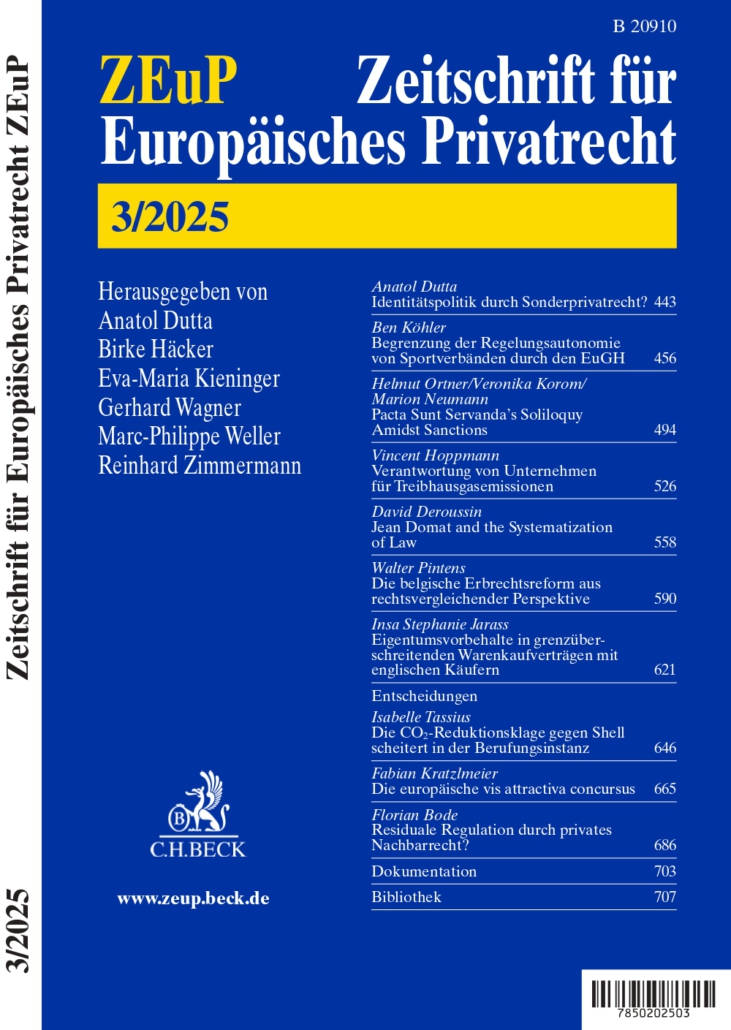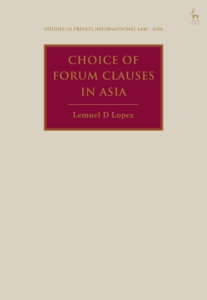Views
US Supreme Court: Hearing in Smith & Wesson Brands, Inc. et al. v. Estados Unidos Mexicanos (Mexico). Selling guns comparable to selling beer to teenagers?

Written by Mayela Celis, Maastricht University
The hearing in the case of Smith & Wesson Brands, Inc. et al. v. Estados Unidos Mexicanos (Mexico) No. 23-1141 took place in March 2025 before the US Supreme Court. We have previously reported on this case here and here. The transcript and the audio files can be found here.
As previously indicated, this is a much-politicized case brought by Mexico against US gun manufacturers. Mexico alleges inter alia that defendants actively assist and facilitate trafficking of their guns to drug cartels in Mexico. Among the claims for relief are: Negligence, public nuisance, defective condition – unreasonably dangerous, negligence per se, gross negligence, unjust enrichment and restitution, violation of CUTPA [Connecticut Unfair Trade Practices Act], Violation of Mass. G.L. c. 93A [Massachusetts Consumer Protection Act] and punitive damages.
Brexit and PIL – Belgian Supreme Court confirms the application of the 2005 Hague Convention to jurisdiction clauses designating UK courts concluded after 1 October 2015
By Guillaume Croisant (Linklaters LLP)
The United Kingdom deposited an instrument of accession to the Hague Convention of 30 June 2005 on Choice of Court Agreements (the “Convention”) on 28 September 2020. This instrument of accession became effective after the Brexit’s transition period, on 1 January 2021, and gained binding force within the UK legal order following the adoption of the Private International Law (Implementation of Agreements) Act 2020.
As many readers will be aware, a controversy exists regarding the temporal scope of the Convention. It applies to exclusive choice of court agreements concluded after its entry into force for the State of the chosen court and to disputes initiated after its entry into force for the State of the seized court. EU Member States have been bound by the Hague Convention since its approval by the European Union on 1 October 2015, but what about the UK after its withdrawal from the EU?
According to a first viewpoint, reflected in the UK’s instrument of accession, ” In accordance with Article 30 of the 2005 Hague Convention, the United Kingdom became bound by the Convention on 1 October 2015 by virtue of its membership of the European Union, which approved the Convention on that date.”
Conversely, under a second viewpoint (apparently shared by the European Commission in its ‘Notice to stakeholders – Withdrawal of the United Kingdom and EU rules in the field of civil justice and private international law’ dated 27 August 2020, p. 9), the Convention could only apply after the United Kingdom’s ‘independent’ ratification, which occurred on 1 January 2021. If this second perspective were accepted, jurisdiction agreements concluded before this date would not benefit from the mutual recognition system established by the Convention.
In a judgment (in French) dated 27 March 2025 (C.24.0012.F), the Belgian Supreme Court (Court de Cassation/Hof van Cassatie) ruled in favour of the first viewpoint, holding that “The Hague Convention of 30 June 2005 has been applicable to the United Kingdom as a bound State, owing to the European Union’s approval of the Convention, from 1 October 2015 until 31 December 2020, and as a contracting party from 1 January 2021. The argument, in this regard, that the United Kingdom ceased to be bound by the Convention following its withdrawal from the European Union on 1 February 2020, is without legal basis.”
Foreign Sovereign Immunity and Historical Justice: Inside the US Supreme Court’s Restrictive Turn in Holocaust-Related Cases

By Livia Solaro, PhD candidate at Maastricht University, working on the transnational restitution of Nazi-looted art
On 21 February 2025, the US Supreme Court issued a ruling in Republic of Hungary v. Simon,[1] a Holocaust restitution case with a lengthy procedural history. Delivering this unanimous decision, Justice Sotomayor confirmed the restrictive approach to cases involving foreign states inaugurated in 2021 by Federal Republic of Germany v. Philipp.[2] In light of the importance of US practice for the development of customary law around sovereign immunity,[3] and its impact on questions of historical justice and transnational accountability, the Simon development deserves particular attention. Read more
News
ZEuP – Zeitschrift für Europäisches Privatrecht 3/2025
A new issue of ZEuP – Zeitschrift für Europäisches Privatrecht is now available and includes contributions on EU private law, comparative law and legal history, legal unification, private international law, and individual European private law regimes. The full table of content can be accessed here: https://rsw.beck.de/zeitschriften/zeup. 
The following contributions might be of particular interest for the readers of this blog:
- Pacta Sunt Servanda’s Soliloquy Amidst Sanctions: The Impact of EU Sanctions on Contractual Performance in Arbitration Proceedings
Helmut Ortner, Veronika Korom and Marion on the Impact of EU Sanctions on Contractual Performance in Arbitration Proceedings: EU sanctions against Russia and Russia’s countermeasures have significantly disrupted trade, supply chains, and contractual relations, sparking disputes frequently resolved through arbitration. European legal systems provide a range of mechanisms—including force majeure, impossibility, frustration, and hardship—to address sanctions-related performance impediments. Despite doctrinal divergences, these frameworks tend to converge on practical outcomes. To mitigate risks and increase legal certainty, parties are well-advised to incorporate tailored clauses in their contracts. - Eigentumsvorbehalte in grenzüberschreitenden Warenkaufverträgen mit englischen Käufern
Insa Stephanie Jarass on retention of title clauses in contracts with English buyers: In PST Energy 7 Shipping LLC v OW Bunker Malta Ltd (The Res Cogitans) [2016] UKSC 23, the Supreme Court held that the Sale of Goods Act 1979 no longer applies to certain con-tracts containing retention of title clauses which had previously always been categorised as contracts for the sale of goods. This article analyses the legal implications of this decision for contracts for the supply of goods to Eng-land. In addition to the legal uncertainties that have always surrounded the validity in rem of retention of title clauses under English law, the decision adds a new level of complex-ity at the contractual level that requires par-ticular attention when drafting international contracts. - Die europäische vis attractiva concursus – Altbekanntes, Neues und Ungeklärtes zu Reichweite, Kompetenzkonflikten und materieller Sperrwirkung
Fabian Kratzlmeier comments on the decision by the ECJ in C-394/22, addressing the law applicable in the context of insolvency proceedings.
Chair for Comparative and Private International Law, University of Vienna
The following information was kindly shared with us by Matthias Lehmann (University of Vienna).
At the University of Vienna, a Chair for Comparative Law and Private International Law will become vacant in 2026 (current holder: Professor Helmut Ofner).
The role will be to teach and research private international law and comparative law. Knowledge of the German language and the Austrian legal system is not a prerequisite; however, applicants should be willing to learn German and familiarise themselves with Austrian law. Familiarity with several legal systems is highly desirable. A specialisation in a particular area, such as international family law or international commercial law, is welcome; publications in the field of uniform law and European law are an advantage.
The successful candidate is expected to relocate to Vienna, which is consistently ranked as the most or second-most liveable city in the world (see Global Liveability Index). Initial appointments to a first professorship may be limited to six years, with the possibility of extending it to a permanent position.
More information on the position is available here. The application deadline is 17 September 2025.
[Out Now] Lopez on Choice of Forum Clauses in Asia

The Hart Series “Studies in Private International Law – Asia” continues to deliver outstanding volumes, the latest being authored by Lemuel D. Lopez (lecturer of Law at the Royal Melbourne Institute of Technology University), and titled “Choice of Forum Clauses in Asia”.
This marks the 13th volume in the series, which was launched only a few years ago in 2019, with many more volumes expected to follow.
The topic is of great significance, and this book provides a much-needed Asian perspective, shedding light on how forum selection clauses function within the region’s unique legal environment.
The book’s description reads as follows:
This book compares and explains the approaches taken by Asian courts when choice of forum clauses in international commercial contracts are challenged in litigation.
It examines key common law jurisdictions (Singapore, Hong Kong and Malaysia), civil law jurisdictions (China, Japan, and Indonesia), and hybrid jurisdictions (the Philippines).
With Asia’s ascent in cross-border trade and investment, alongside a corresponding increase in cross-border litigation, understanding how Asian courts address choice of forum clauses in international commercial contracts has never been more critical. Employing a comparative law method, the book identifies and explains the relief and remedies used by Asian courts in enforcing choice of forum clauses, analysing how their classification as either contractual or procedural in nature shapes judicial approaches. It further distinguishes choice of forum clauses from arbitration agreements and explores their interaction with other contractual provisions. Party autonomy – as the parties’ freedom to determine the contents of the choice of forum clause and the freedom to control the flow of litigation – is also critically scrutinised.Furthermore, the book investigates the factors courts consider in resolving key choice of forum clause issues (ie, enforceability; specific relief to be granted; existence, validity, interpretation of choice of forum clauses; role of mandatory rules, public policy, and international interests) and explores the prospects for future development of this area of law in Asia.
Crucially, the book highlights the unique approaches of Asian courts, while underscoring the differences and similarities among common law, civil law, and hybrid jurisdictions.
Table of Contents
1. Introduction
2. The Nature of Choice-of-Forum Clauses
3. Party Autonomy and Choice-of-Forum Clauses
4. The Enforcement of Choice-of-Forum Clauses: Singapore, Hong Kong, Malaysia, Philippines
5. The Factors Considered in Granting Relief: Singapore, Hong Kong, Malaysia, Philippines
6. Existence, Validity and Interpretation: Singapore, Hong Kong, Malaysia, Philippines
7. Mandatory Rules, Public Policy and International Interests: Singapore, Hong Kong, Malaysia, Philippines
8. Choice of Forum Clauses in Asian Civil Law Countries: China, Indonesia and Japan
9. Conclusions


